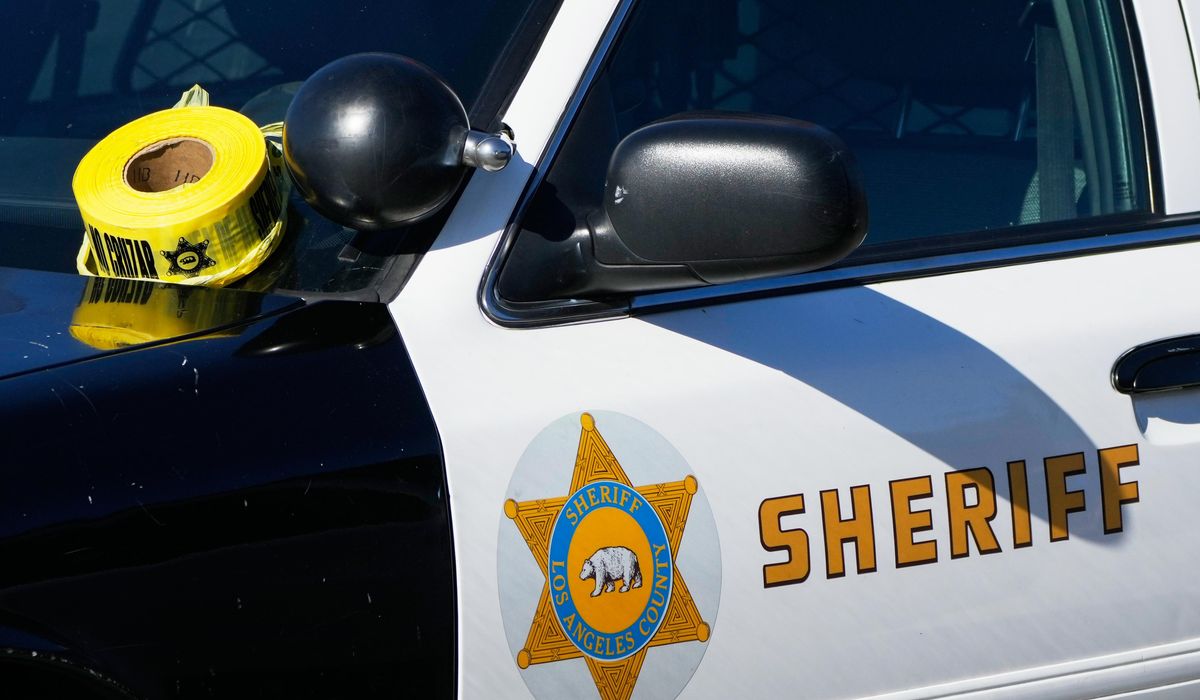


The number of police officers killed in the line of duty has fallen by more than 50% across the nation so far this year, according to a new report.
Analysts chalked up the positive trend to not only better police training but also a shift away from anti-police attitudes since President Trump was reelected last year.
The National Law Enforcement Officers Memorial Fund’s midyear fatality report for local, state and federal authorities showed a 53% year-over-year drop in officers being killed in shootings, traffic incidents or a variety of other causes that occur while out on patrol.
“We as an organization never like to use the words ’good news’ when we’re talking about or reporting on even a single police officer’s death, but I would call this a very welcome and encouraging trend line,” Bill Alexander, the memorial fund’s CEO, told The Washington Times.
The report said police officers fatally shot on the job fell from 28 during the first half of last year to 22 this year between Jan. 1 and June 30.
Traffic-related deaths were cut in half during that same period, dropping from 26 in 2024 to 13 by the end of June.
And officers who died from “other” causes — which the report said can range from medical issues to stabbings and assaults — dropped from 35 last year to just seven in 2025.
Mr. Alexander said the nation is on pace to see fewer than 100 line-of-duty deaths by the end of this year, which would be a first for the country in the more than 50 years officer deaths have been tracked.
The executive credited better law enforcement training for giving officers the tools to defuse tense situations both gracefully and safely.
Mr. Alexander also said Mr. Trump’s election last fall marked a culture shift away from the anti-police fervor that was so prominent in the previous five years.
“The profession writ large was targeted and demonized to, I might argue, an unfair degree,” the CEO said.
“Across almost every line of communication, whether that was popular media, social media, mainstream media, maybe even to a worrying degree from too many of our elected officials, again, targeting the profession,” Mr. Alexander said. “I think that that was having a really detrimental impact on a number of interactions between the public and law enforcement.”
Mr. Trump, a Republican, has been loudly supportive of police and of using federal powers to address nagging crime issues during his return to the White House.
The president reiterated his interest Tuesday in taking over the District, partly due to the deadly shooting of a congressional intern last week, who was killed by a stray bullet.
“We’re thinking about doing it, to be honest with you. We want a capital that runs flawlessly,” he said during a Cabinet roundtable. “It wouldn’t be hard for us to do it. And we’ve had a good relationship with the mayor. We’re testing to see if it works.”
Mr. Trump previously threatened to assume control of the District of Columbia’s government in February over his concerns about crime, homelessness and a need to beautify the city. He backed off after D.C. Mayor Muriel Bowser cleared homeless encampments near federal buildings, such as the State Department.
And last month, the president activated the California National Guard to protect federal immigration authorities from being confronted by rioters in Los Angeles.
Agitators who oppose Immigration and Customs Enforcement have grown increasingly violent as the White House pushes for more deportations.
Federal prosecutors in Texas said 10 people are being held on attempted murder charges following an Independence Day shooting outside of an immigration detention center in Alvarado that left one officer wounded.
Mr. Alexander, the CEO of the National Law Enforcement Officers Memorial Fund, said he doesn’t believe the anti-ICE attitudes taking hold in certain parts of the country are as pervasive as the anti-cop sentiment that became a national phenomenon.
But he did say that it is a “worrying trend” that he hopes doesn’t continue.
• Matt Delaney can be reached at mdelaney@washingtontimes.com.
